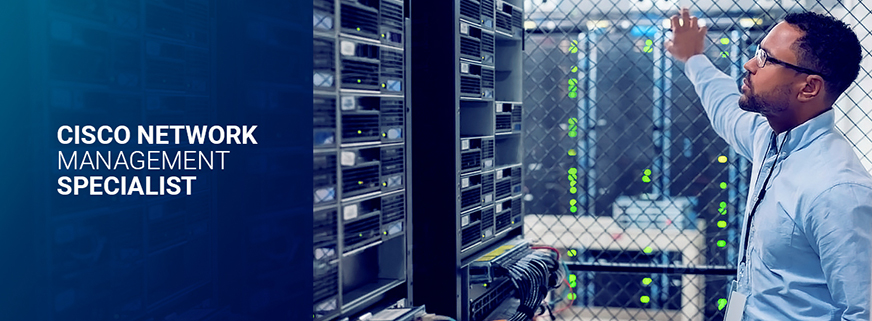Who Is A Cisco Network Engineer And What Are His Duties?
Today, In The Network World, Several Companies Are Producing Network Equipment, And Cisco Is One Of The Pioneers Of This Industry.
Cisco manufactures and sells network hardware, software, telecommunications equipment, and other high-tech products and services. In this article, we will introduce you to the Cisco network engineer.
A network engineer has a high level of knowledge in computer networks, whose task is to design, install, implement, and configure network equipment such as routers and switches and security systems such as firewalls, monitoring, and troubleshooting computer networks.
In the following, we will discuss the following: Who is a Cisco network engineer? What are the Cisco network engineer’s responsibilities and duties – Cisco network engineer requirements – How to become a Cisco network engineer? – Documents and training required for – a Cisco network engineer.

Who is a Cisco network engineer?
The central role of Cisco network engineers is to maintain Cisco networks. They install, support, and configure networks. A Cisco network engineer is an expert who develops and maintains networks using Cisco brand products.
They also troubleshoot problems, ensure network security, and provide technical support. On the other hand, after the architects provide the network design, Cisco engineers make changes to their layout by considering issues such as traffic, necessary infrastructure upgrades, troubleshooting, etc.
Therefore, organizations and companies that plan to develop extensive computer networks take advantage of them. Cisco network engineers work primarily full-time in an office environment, requiring them to be available 24/7 to respond to emergencies.
For employers, the primary educational requirement for this job is a bachelor’s degree in a related field. Employers also usually require applicants to have at least three years of relevant work experience. They also require in-depth knowledge of Cisco software and hardware from applicants.
Responsibilities and duties of a Cisco network engineer
Job duties for Cisco network engineers can vary depending on their employer and work environment. However, there are several core duties familiar to all Cisco network engineers, such as:
-
Analysis of existing hardware, software, and network systems.
-
They are creating and implementing scalable Cisco networks. Cisco network engineers install, maintain, and configure Cisco networks with experience and knowledge of Cisco routing and switching. Cisco network engineers must have experience troubleshooting layer one network connectivity and understand layer two and three switchings. On the other hand, using routing protocols, Cisco network engineers work with routers and have a strong understanding of routers.
-
Testing and troubleshooting installed Cisco systems and solving network technical problems. Cisco network engineers troubleshoot and test Cisco networks. Technical issues include network, system crashes, and routing changes and updates.
-
We are conducting speed and security tests in installed networks.
-
Improve network security. Cisco network engineers ensure proper access, logging, and auditing controls by applying security techniques. They also develop network security guidelines.
-
It’s Software testing and evaluation. Cisco network engineers ensure reliability by testing and evaluating software and hardware. They develop processes to improve network performance to maintain systems.
-
Upgrade or replace hardware and software systems as needed.
-
Network performance evaluation. Cisco network engineers evaluate network performance to ensure business needs are met. They also provide recommendations for network planning and systems upgrades.
-
We are providing network reports.
-
Its Training end users on installed Cisco products.
Cisco network engineer requirements
In addition to advising on how to improve networks, network engineers must be able to understand how complex networks work and identify problems. They should be well-versed in security, virtualization, containers, storage engineering, and wide-area networks (WAN).
They must create a reliable, optimally-performing network that includes the Internet, LAN, and WAN segments. On the other hand, many Cisco network engineers have previous work experience in roles such as network technicians or network administrators. Therefore, to become a professional Cisco network engineer, it is better to gain the necessary experience before entering this job.
So, in addition to three (or more) years of relevant work experience, employers typically look for people with the following skills:
- Having CCNA and CCNP certifications
- Detailed knowledge of Cisco network systems
- Experience in storage engineering, wide area networks, and network virtualization.
- Advanced troubleshooting skills and ability to troubleshoot network outages
- Ability to identify, deploy and manage complex network systems.
- User training experience
- Experience working with Cisco-based networks
- Customer service skills are necessary to build relationships with customers.
- A bachelor’s degree in computer science or information technology is an advantage. (Most employers prefer that the applicant has at least a bachelor’s degree in a related field.)
How to become a Cisco network engineer?
If you’re interested in becoming a Cisco network engineer, one thing to consider is how much education you need. Please note that even though most Cisco network engineers have university degrees, it is possible to find success in the network field even without these degrees.
In the following, we will briefly introduce the documents you need to get started.
Required qualifications and training for a Cisco network engineer
Employers require Cisco network engineers to have extensive knowledge of Cisco network equipment, such as routers and switches, and skills in implementing, setting up, troubleshooting, and configuring networks. Most Cisco network engineers have a bachelor’s degree in computer or information technology. In the resume of some of them, a master’s degree can also be seen. Employers generally prefer employees who hold a CCNP or at least a CCNA.
These Cisco documents show that employees have advanced knowledge and skills to work with the network, especially Cisco equipment. At a higher level, these engineers can train and obtain the CCIE certificate of this company in their field of interest.
The Cisco Certified Network Associate (CCNA) certification is one of the most prestigious IT certifications and the first Cisco certification. CCNA allows engineers to understand how different networks communicate with each other to create a secure network.
They also learn how networks interact with different types of devices.
After receiving this certification, they can establish switch-to-switch communications, configure routing on Cisco devices, configure a switch with switch-to-VLAN contacts, configure IP addresses, and learn the correct methods for connecting wide a wide-areas. (WAN) and so on.
Cisco Certified Network Professional (CCNP) is a professional-level certification offered to full-time network or system administrators or those working with local or comprehensive area network infrastructure. Having the CCNP certification confirms your ability to implement and troubleshoot LAN and WAN networks at a professional level. In addition, you will be recognized as someone who can collaborate with experts on issues related to voice, wireless, and advanced security solutions.
Cisco Certified Internetwork Expert (CCIE) is a high-level certification for senior network professionals who design, build, implement, maintain, and troubleshoot complex enterprise network infrastructures. After receiving this certification, you will be recognized as an expert in Cisco computer networks.
These certifications are globally accepted as the most trusted networking certifications in the industry.
last word
The future looks bright for network system administrators, including Cisco engineers, and employment in this field is expected to increase over the coming years.
Despite the advent of SDN networks and automation, networking skills will continue to be in demand because it will not be possible to automate everything. Addressing network problems through troubleshooting will continue, and as the size of the network increases, the need for network engineers will continue to increase.
Additionally, aspiring Cisco engineers should consider upgrading their knowledge. According to Cisco, they also need to focus on specific skills such as security, cloud, analytics, and architecture. In addition, they now need to understand programming and be familiar with open-source operating systems.











